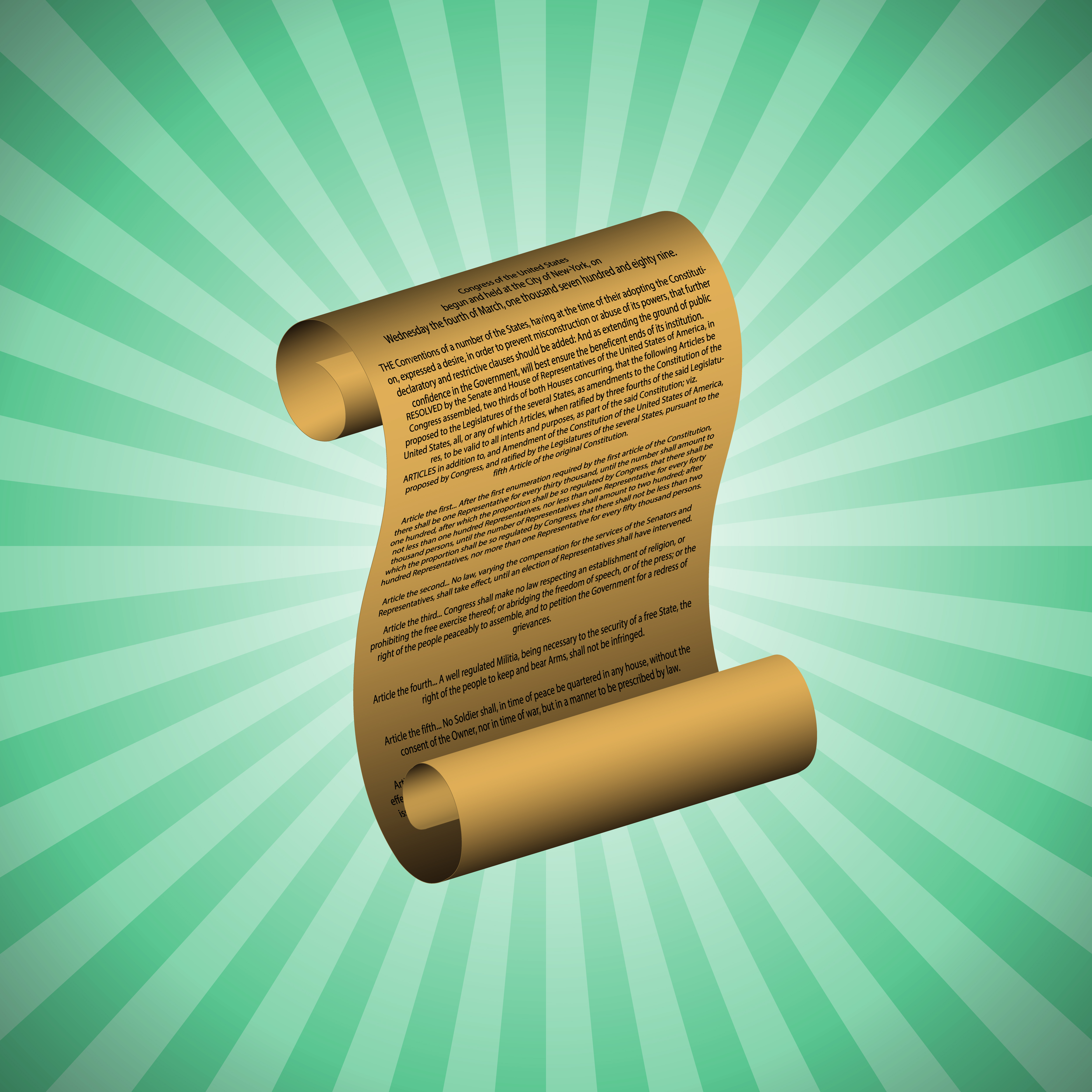“While the Lite-Netics decision provides strong and clear guidance on the legal landscape, a variety of long-term business, strategic, ethical, and reputational factors come into play when advising on marketplace infringement notices.”
 As James Madison once said, “Our First Amendment freedoms give us the right to think what we like and say what we please. And if we the People are to govern ourselves, we must have these rights, even if they are misused by a minority.” Not often do such lofty constitutional principles intersect with patent litigation. But the Federal Circuit’s decision in Lite-Netics, LLC v. Nu Tsai Capital, LLC, No. 2023-1146 (Fed. Cir. Feb. 17, 2023), upholds strong free speech rights for patent holders. The case deals with an issue of frequent concern for both outside and in-house patent counsel: how much can (or should) be said in the marketplace about a patent dispute?
As James Madison once said, “Our First Amendment freedoms give us the right to think what we like and say what we please. And if we the People are to govern ourselves, we must have these rights, even if they are misused by a minority.” Not often do such lofty constitutional principles intersect with patent litigation. But the Federal Circuit’s decision in Lite-Netics, LLC v. Nu Tsai Capital, LLC, No. 2023-1146 (Fed. Cir. Feb. 17, 2023), upholds strong free speech rights for patent holders. The case deals with an issue of frequent concern for both outside and in-house patent counsel: how much can (or should) be said in the marketplace about a patent dispute?
Lite-Netics—of ABC’s Shark Tank fame—markets Christmas string lights having an innovative mounting mechanism. It asserted that its competitor Nu Tsai, which does business as Holiday Bright Light (HBL), infringed on its U.S. patents. After the parties exchanged letters explaining their positions on infringement or non-infringement, Lite-Netics sued in the federal district court in Nebraska. Soon afterwards, Lite-Netics distributed notices to the customers for which the parties competed.
The notice told the customers that other companies were attempting to “copy” Lite-Netics’s patented products; that Lite-Netics had filed a “patent infringement lawsuit against HBL” to stop it from “making and selling infringing products”; and that Lite-Netics was “also considering including any known company using or reselling the HBL products as co-defendants in this lawsuit.” Soon after the notice was distributed in the marketplace, HBL decided to take action in response. It immediately asserted counterclaims against Lite-Netics for unfair competition, false advertising, deceptive trade practices, tortious interference, defamation, and bad faith, and sought a preliminary injunction from the district court against further such communications from Lite-Netics.
The district court agreed with HBL. It ordered Lite-Netics to refrain from making statements in the marketplace that suggested “copying” by HBL, that suggested that HBL’s customers will be burdened as defendants in any lawsuit, or that suggested that HBL is a patent infringer. Lite-Netics, No. 8:2022cv00314 (D. Neb. Oct. 27, 2022). However, Lite-Netics appealed that order to the Federal Circuit and won on First Amendment grounds.
Free Speech Comes First
The Federal Circuit clarified that First Amendment protections apply to the type of communications issued by Lite-Netics into the marketplace. The federal government’s conferral of a patent on Lite-Netics allowed it to “press [its patent] rights [in the marketplace] even though [it] may misconceive what those rights are.” 2023-1146 Ruling at 14-15. Moreover, “federal patent law preempts state-law tort liability for a patentholder’s good faith conduct in communications asserting infringement of its patent and warning about potential litigation.” Id. at 11. Therefore, the court explained, HBL needed to prove “bad faith” to support its claims, and even if bad faith could be proven, any injunction against Lite-Netics’s speech needed to be tailored to “not burden speech more than necessary.” Id. at 13.
The Federal Circuit held that the district court had abused its discretion and found that HBL had not even met the threshold bar to interfere with Lite-Netics’s freedom of speech about its patent rights. Specifically, “bad faith” in this context requires proving both objective and subjective bad faith. Objective bad faith, explained the court, would require showing that Lite-Netics’s claims were “objectively baseless,” i.e., that “no reasonable litigant could realistically expect success on the merits.” Id. at 11. Courts must treat “objective baselessness” as a “threshold requirement,” which means that “[s]ubjective bad faith must be addressed if allegations are determined to be objectively baseless, but not otherwise.” Id. at 13. (emphasis added). Conceivably, therefore, a litigant might even subjectively know that its position about its own patent is wrong, but false communications in the marketplace will be protected under the First Amendment nonetheless if they have an objectively reasonable basis.
Lite-Netics’s customer notice easily satisfied scrutiny under this standard. HBL had raised several issues of technical patent law—ranging from claim construction to prosecution history estoppel—to argue that its products were non-infringing. But again and again, the court found that Lite-Netics’s responses were reasonable. Even if it was possible that Lite-Netics might ultimately lose, the court emphasized how the marketplace notice was sent very early in the litigation:
[W]e conclude that Lite-Netics’s position on all three of those disputes has not been shown, at this stage of the litigation (before, e.g., full claim construction proceedings or possible expert reports on infringement), to be objectively baseless. That conclusion requires vacatur of the preliminary injunction, without finally resolving the underlying disputes about claim construction, prosecution history estoppel, or other issues.
Id. at 15 (emphasis added).
‘Can’ Versus ‘Should’
Christmas lights serve as a tangible symbol of holiday cheer and good will. Perhaps that symbol in this case can also serve as a reminder that what can be done under the First Amendment may not necessarily coincide with what should be done. While the Lite-Netics decision provides strong and clear guidance on the legal landscape, a variety of long-term business, strategic, ethical, and reputational factors come into play when advising on marketplace infringement notices. As Madison observed, the people themselves are charged with governing the responsibility for potential “misuse” of the right to “say what we please.” Thus, while patent law provides the requisite freedom for marketplace patent communications, it is up to experienced and responsible counselors to weigh all factors in the best interests of a client’s goals and values.
Image Source: Deposit Photos
Image ID: 62938891
Author: kasezo2

![[IPWatchdog Logo]](https://ipwatchdog.com/wp-content/themes/IPWatchdog%20-%202023/assets/images/temp/logo-small@2x.png)

![[Advertisement]](https://ipwatchdog.com/wp-content/uploads/2024/04/UnitedLex-May-2-2024-sidebar-700x500-1.jpg)
![[Advertisement]](https://ipwatchdog.com/wp-content/uploads/2024/04/Artificial-Intelligence-2024-REPLAY-sidebar-700x500-corrected.jpg)
![[Advertisement]](https://ipwatchdog.com/wp-content/uploads/2024/04/Patent-Litigation-Masters-2024-sidebar-700x500-1.jpg)

![[Advertisement]](https://ipwatchdog.com/wp-content/uploads/2021/12/WEBINAR-336-x-280-px.png)
![[Advertisement]](https://ipwatchdog.com/wp-content/uploads/2021/12/2021-Patent-Practice-on-Demand-recorded-Feb-2021-336-x-280.jpg)
![[Advertisement]](https://ipwatchdog.com/wp-content/uploads/2021/12/Ad-4-The-Invent-Patent-System™.png)






Join the Discussion
One comment so far.
Anon
March 10, 2023 08:53 amI could easily see that the right to seek redress – and the requirement to give notice are important drivers here.
Perhaps a better journalistic effort would be to explore just why the lower court judge did not want a patent holder to speak up.